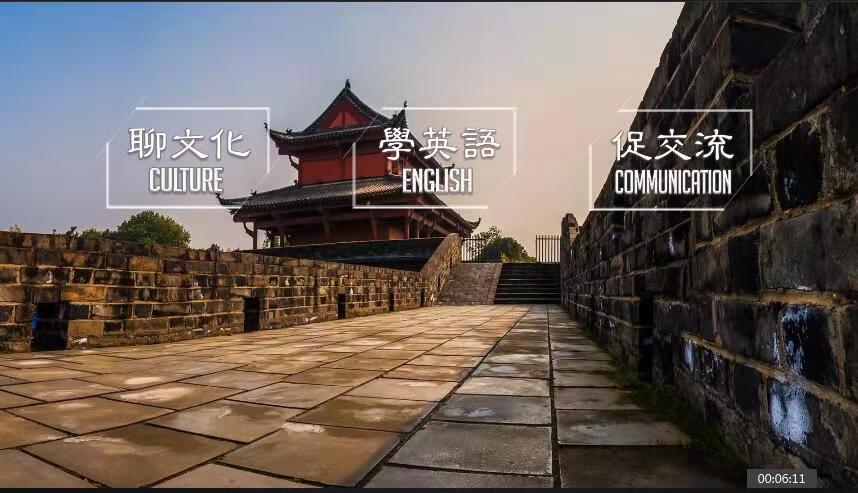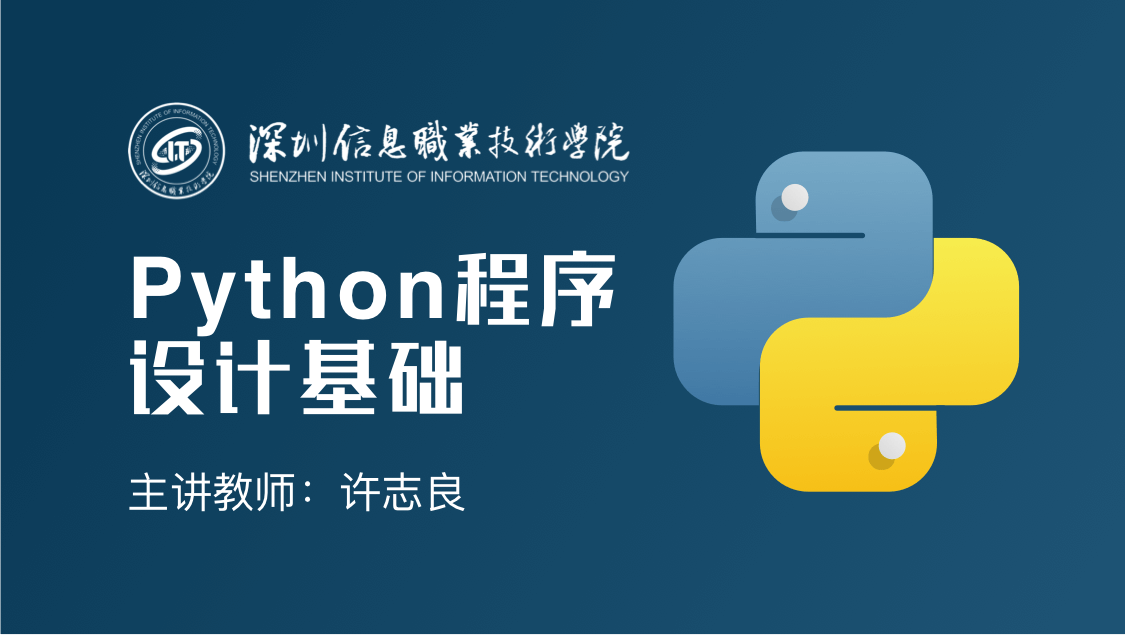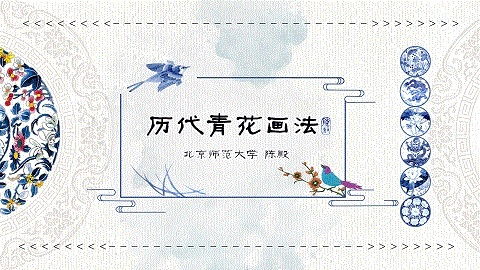
当前课程知识点:庄子寓言及其智慧 > Module 3 On Craftsmanship 论习技 > 3.6 Experts' Views on Zhuangzi's Wisdom 庄子智慧专家谈 > 3.6.2 How is Zhuangzi’s fable different from Mencius’s and Han Feizi’s? 庄子寓言与孟子、韩非子寓言有何异同?
刚才我们也提到了
孟子和韩非子的寓言。
确实,庄子的寓言与其他寓言
其实存在着一定的差异。
韩非子寓言表现法家的观点,
多用历史故事为题材,
多用上层人物
特别是
法术人士
做主人公,
极少用拟人手法,
他的寓言描写简单,
讲究语句规范,
用词准确,
表现出
峻峭挺拔的风格。
比如
《滥竽
充数》
《买椟
还珠》
《守株待兔》
《自相矛盾》等。
孟子与庄子
生活的年代非常接近,
但有趣的是,
他们俩在各自的著作中
都没有提及对方。
这个问题
是南宋大学问家朱熹的学生
在读书的时候发现的。
当时他们也向朱熹提问,
但博学的朱熹也没有办法给予解答,
直到今天,这依然是一个难解之谜。
孟子的书中也多用寓言故事
来表达观点,
但是他的寓言故事
多采自民间传说,
比如《揠苗助长》
《弈秋诲弈》
《五十步
笑百步》等。
是的,这确实很难解释。
如果我们把庄子的寓言
和他那个时代的其他寓言进行比较,
庄子寓言的特色
就非常明显。
庄子寓言中
最打动人心的部分,
有对历史故事的改编,
也有对民间故事的传承
但最重要的是
庄子本人的虚构。
比如展翅南飞的大鹏、
比如姑射山上的神人、
各种奇形怪状的树木。
所以说,庄子被认为是
最具创造力的作家,
相较于先秦诸子百家,
他的寓言
是其他诸子寓言所无法比拟的。
现在学术界虽然
对寓言产生的年代有许多不同意见,
但几乎一致认为
战国时期是
中国古代寓言最繁荣的时期。
我们有些同学就会感到好奇——
那为什么在战国时期会突然出现
这么多的寓言故事呢?
为什么当时
突然有许多寓言
出现在战国时期,
这与当时贵族的没落
以及士阶层的兴起密切相关。
战国时期的社会大变革
和政治斗争的白热化,
是先秦寓言得以发生
和发展的肥沃土壤;
“百家争鸣”
的盛况
和思想界
的活跃,
提供了适宜的气候和条件,
孕育和繁荣了寓言文学。
此外,士阶层的崛起,
则为寓言文学的大量产生,
提供了主体。
当时
统治阶级
选取人才的标准,
主要是看他们有没有高谈雄辩的口才,
士阶层要得到
统治阶级的赏识,
不管他们各自的思想主张有怎样的差异,
首先都必须具备
语言的技巧。
在这里,我们还要关注到一个有趣的现象:
那就是战国时期的君主
跟春秋时期
不大一样。
春秋时的君王
都是贵族出身,
文化素养高,
而战国时期的
很多君王
是凭借武力登上君主宝座,
所以他们的文化素质是比较低的。
面对这样的一群君主,
策士们
必须非常重视
自己的论辩技巧,
来让自己的观点主张
得到采纳。
就一味的说理肯定没有办法
吸引这些君主。
所以,寓言故事的参加
就成为必不可少的论辩手段。
-1.1 Lesson 1 Module Guide 单元导学
--1.1.2 Lesson 1 Module Guide
-1.2 Lesson 2 The Man Named Zhuangzi 庄子其人
--1.2.1 Lesson 2 The Man Named Zhuangzi
--1.2.2 Lesson 2 The Man Named Zhuangzi
-1.3 Lesson 3 The Book of Zhuangzi 庄子其书
--1.3.1 Lesson 3 The Book of Zhuangzi
--1.3.2 Lesson 3 The Book of Zhuangzi
-1.4 Lesson 4 The Language of Zhuangzi 庄子其言
--1.4.1 Lesson 4 The Language of Zhuangzi
--1.4.2 Lesson 4 The Language of Zhuangzi
-1.5 Lesson 5 The Ideal Life of Zhuangzi 庄子其志
--1.5.1 Lesson 5 The Ideal Life of Zhuangzi
--1.5.2 Lesson 5 The Ideal Life of Zhuangzi
-1.6 Experts' Views on Zhuangzi's Wisdom 庄子智慧专家谈
--1.6.1 Is zhuangzi negative in nature? 庄子消极吗?
--Interview Question(1)
--1.6.2 Is zhuangzi still inspiring in today's society? 庄子过时了吗?
--Interview Question(2)
-1.7 Students' Understanding of Zhuangzi's Wisdom 庄子智慧学生说
--1.7.1 Zhuangzi's Spiritual World 庄子的精神世界
--1.7.2 The Development of Zhuangzi's Ideas 庄思想发展
--1.7.3 English Translation of Zhuangzi 庄子的英文翻译
--1.7.4 Introduction of Zhuangzi 庄子生平介绍
--1.7.5 Zhuangzi's Home State 庄子出生国
-2.1 Lesson 1 Module Guide 单元导学
--2.1.1 Lesson 1 Module Guide
-2.2 Lesson 2 On Taking Stock 审时度势
--2.2.1 Lesson 2 On Taking Stock
--2.2.2 Lesson 2 On Taking Stock
-2.3 Lesson 3 On Courage 何谓勇气
--2.3.2 Lesson 3 On Courage
-2.4 Lesson 4 On Contentment 知足常乐
--2.4.1 Lesson 4 On Contentment
--2.4.2 Lesson 4 On Contentment
-2.5 Lesson 5 On Modesty 谦虚谨慎
--2.5.2 Lesson 5 On Modesty
-2.6 Experts' Views on Zhuangzi's Wisdom 庄子智慧专家谈
--2.6.1 What’s the relationship between Zhuangzi and Huizi? 惠子与庄子是何关系?
--Interview Question(1)
--2.6.2 How do we understand the debate in Happy Fish? “鱼之乐”辩什么?
--Interview Question(2)
-2.7 Students' Understanding of Zhuangzi's Wisdom 庄子智慧学生说
--2.7.1 Historical Allusions and Cultural Stories 历史典故及文化故事
--2.7.2 Life Wisdom——Yan Hui Refuses Office 颜回拒官的启示
--2.7.3 On Taking Stock 审时度势候时机
--2.7.4 The Enlightenment of Zhuangzi's Fables 庄子的智慧启迪
-【计分贴3 第2单元】Character analysis
-3.1 Lesson 1 Module Guide 单元导学
--3.1.2 Lesson 1 Module Guide
-3.2 Lesson 2 Essence of Learning 习技要义
--3.2.1 Lesson 2 Essence of Learning
--3.2.2 Lesson 2 Essence of Learning
-3.3 Lesson 3 Importance of Practicing 重在实践
--3.3.1 Lesson 3 Importance of Practicing
--3.3.2 Lesson 3 Importance of Practicing
-3.4 Lesson 4 Internal Factors 内因影响
--3.4.1 Lesson 4 Internal Factors
--3.4.2 Lesson 4 Internal Factors
-3.5 Lesson 5 External Factors 外因作用
--3.5.1 Lesson 5 External Factors
--3.5.2 Lesson 5 External Factors
-3.6 Experts' Views on Zhuangzi's Wisdom 庄子智慧专家谈
--3.6.1 What are the differences between Zhuangzi’s and western fables? 庄子寓言与西方寓言有何异同?
--Interview Question(1)
--3.6.2 How is Zhuangzi’s fable different from Mencius’s and Han Feizi’s? 庄子寓言与孟子、韩非子寓言有何异同?
--Interview Question(2)
-3.7 Students' Understanding of Zhuangzi's Wisdom庄子智慧学生说
--3.7.1 Dongshi Imitated a Beauty Blindly 东施效颦
--3.7.2 The Knife of Cook Ting 庖丁解牛
--3.7.3 The Life of Huizi 惠子生平
--3.7.4 The Skill of Chicken Dissection 自编寓言—剖鸡之技
--3.7.5 Zhuangzi and Huizi 庄子与惠子
-征文赛
-征图赛
-4.1 Lesson 1 Module Guide 单元导学
--4.1.2 Lesson 1 Module Guide
-4.2 Lesson 2 Emphasizing the Soul 思想更重要
--4.2.1 Lesson 2 Emphasizing the Soul
--4.2.2 Lesson 2 Emphasizing the Soul
-4.3 Lesson 3 Pursuing Freedom 追求自由
--4.3.1 Lesson 3 Pursuing Freedom
--4.3.2 Lesson 3 Pursuing Freedom
-4.4 Lesson 4 Respecting the Nature 尊重天性
--4.4.1 Lesson 4 Respecting the Nature
--4.4.2 Lesson 4 Respecting the Nature
-4.5 Lesson 5 Searching for Dao 追求道
--4.5.1 Lesson 5 Searching for Dao
--4.5.2 Lesson 5 Searching for Dao
-4.6 Experts' Views on Zhuangzi's Wisdom 庄子智慧专家谈
--4.6.1 What are the 3 forms of “yan” and their relationships? 何为《庄子》三言及其关系?
--Interview Question(1)
--4.6.2 Why does Zhuangzi sing upon his wife's death? 庄子妻死为何鼓盆而歌?
--Interview Question(2)
-4.7 Students' Understanding of Zhuangzi's Wisdom 庄子智慧学生说
--4.7.1 Separation is for Better Reunion 分别是为了更好的重逢
--4.7.3 Respecting the Nature 自编寓言—尊重天性
--4.7.4 Zhuangzi's Wisdom in Life 智慧启迪
-【计分贴7 第4单元】Explore mind maps & character analyses
-5.1 Lesson 1 Module Guide 单元导学
--5.1.1 Lesson 1 Module Guide
-5.2 Lesson 2 Understanding the Rules 明其理
--5.2.1 Lesson 2 Understanding the Rules
--5.2.2 Lesson 2 Understanding the Rules
-5.3 Lesson 3 Transferring the Use 广其用
--5.3.1 Lesson 3 Transferring the Use
--5.3.2 Lesson 3 Transferring the Use
-5.4 Lesson 4 Perceiving the Self 接纳自我
--5.4.1 Lesson 4 Perceiving the Self
--5.4.2 Lesson 4 Perceiving the Self
-5.5 Lesson 5 Accepting the Others 容纳他人
--5.5.1 Lesson 5 Accepting the Others
--5.5.2 Lesson 5 Accepting the Others
-5.6 Experts' Views on Zhuangzi's Wisdom 庄子智慧专家谈
--5.6.1 What is the relationship between Laozi and Zhuangzi? 老子和庄子是何种关系?
--Interview Question(1)
--5.6.2 How to understand Laozi in the book of Zhuangzi? 如何看待《庄子》中的老子形象?
--Interview Question(2)
-5.7 Students' Understanding of Zhuangzi's Wisdom 庄子智慧学生说
--5.7.1 Uniformity of All Things 齐物论
--5.7.3 Baoya Snapped the String 伯牙绝弦
--5.7.4 Shang Yang Reform 商鞅变法
--5.7.5 The Butterfly Effect 蝴蝶效应
-6.1 Lesson 1 Module Guide 单元导学
--6.1.2 Lesson 1 Module Guide
-6.2 Lesson 2 Awareness of Danger 察觉危机
--6.2.1 Lesson 2 Awareness of Danger
--6.2.2 Lesson 2 Awareness of Danger
-6.3 Lesson 3 Acceptance of Death 淡泊生死
--6.3.1 Lesson 3 Acceptance of Death
--6.3.2 Lesson 3 Acceptance of Death
-6.4 Lesson 4 Tolerance of Co-existence 包容共存
--6.4.1 Lesson 4 Tolerance of Co-existence
--6.4.2 Lesson 4 Tolerance of Co-existence
-6.5 Lesson 5 Art of Love 爱亦有道
--6.5.2 Lesson 5 Art of Love
-6.6 Experts' Views on Zhuangzi's Wisdom 庄子智慧专家谈
--6.6.1 How was the book of Zhuangzi preserved? 《庄子》这本书是怎么流传至今的?
--Interview Question(1)
--6.6.2 How to critically perceive Zhuangzi’s thought? 如何辩证地理解庄子思想?
--Interview Question(2)
-6.7 Students' Understanding of Zhuangzi's Wisdom 庄子智慧学生说
--6.7.1 Zhuangzi's Philosophy in Our Daily Life 生活中的庄子哲学
--6.7.2 Singing While Beating the Earthen Basin 鼓盆而歌
--6.7.3 The Kungfu Jianghu of Jinyong 金庸的武侠江湖
--6.7.4 Philosophical Enlightenment 庄子哲学启示
--6.7.5 The Weaver at the Edge of the Cliff 自编寓言—崖边织者
-课程大作业---论文式讨论及互评活动
-Final Examination








